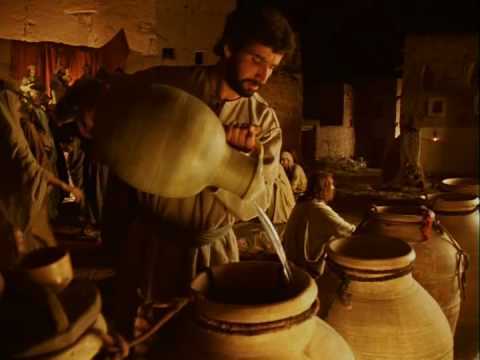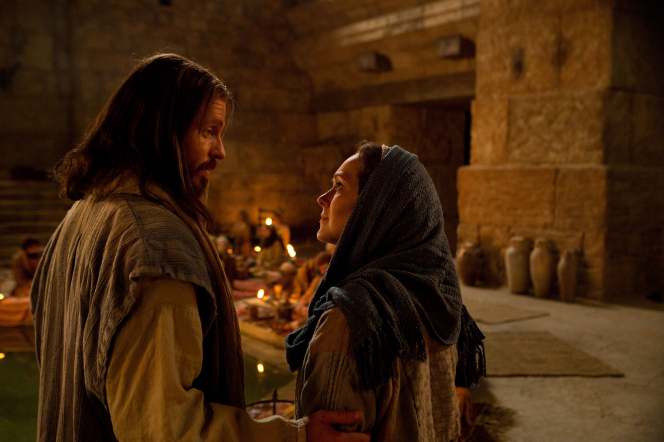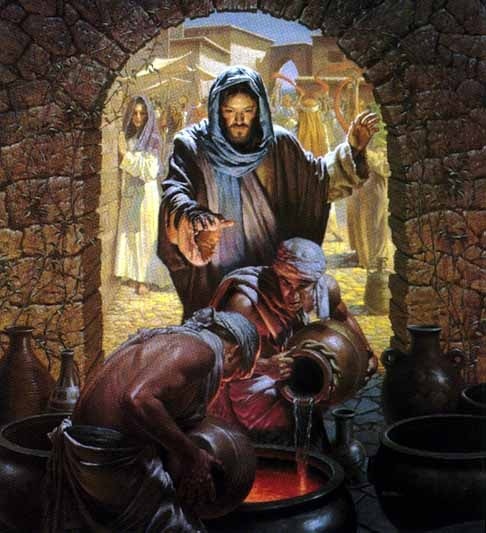
Do I Follow My Feelings or God?

Do I Follow My Feelings or God?
The scene is an invitation to go with his brothers to Jerusalem to the big Fall Festival of Tabernacles. The festival would be something Jesus likes and it is in Jerusalem with lots of celebrating and worship at the Temple. He could go with his brothers like they did as kids. The Torah says the men of Israel are to attend three festivals each year and this is one of them. Jesus could justify going with his brothers because he needs to spend more time with them and they invited him. Jesus could feel it would be the right thing to go to the festival because of religious obligation and it is fun. Jesus has to keep in mind God’s plan for him. He must choose between his feelings and God. He chooses God’s plan.
After this, Jesus traveled around Galilee. He wanted to stay out of Judea, where the Jewish leaders were plotting his death. But soon it was time for the Jewish Festival of Shelters, and Jesus’ brothers said to him, “Leave here and go to Judea, where your followers can see your miracles! You can’t become famous if you hide like this! If you can do such wonderful things, show yourself to the world!” For even his brothers didn’t believe in him. Jesus replied, “Now is not the right time for me to go, but you can go anytime. The world can’t hate you, but it does hate me because I accuse it of doing evil. You go on. I’m not going to this festival, because my time has not yet come.” After saying these things, Jesus remained in Galilee. John 7:1-9 (NLT2)
Jesus’ walk with God the Father required awareness of priorities and overcoming personal feelings for what is greater. In Luke, Jesus speaks to the feelings about family and being his disciple.
A large crowd was following Jesus. He turned around and said to them, “If you want to be my disciple, you must hate everyone else by comparison—your father and mother, wife and children, brothers and sisters—yes, even your own life. Otherwise, you cannot be my disciple.” Luke 14:25-26 (NLT2)
Feelings guide many decisions and can fog making the right ones. Choosing God’s way leads to good things for ourselves and our family too.
Have you made decisions to go with God rather than submit to feelings and do something else?
Have feelings for family fogged your view of God’s light?
Have you or someone you know adapted God’s truth due to feelings for a family member?
Have you chosen to be Jesus’ disciple?
Read more...

Master of Ceremonies

The Master of Ceremonies
There is something about Jesus, something that surprises and supersedes. Having him around and seeing what he does brings joy. He is viewed by many as a killjoy, but he is far from that, he is the source of life, meaningful and abundant life, and joy.
Jesus, during a discussion about his departure and prayer, made a wonderful statement about the intersection of himself and joy.
You haven’t done this before. Ask, using my name, and you will receive, and you will have abundant joy. John 16:24 (NLT2)
Abundant joy is something those who have a relationship with Jesus can experience. The relationship matters. Someone who is a friend of the owner of a restaurant can ask for food cooked particularly, that would then be prepared just right, and there is joy. Jesus says to his friends that they are to ask using his name, and they will receive and with that comes joy.
When Jesus attended a wedding feast, a problem arose because the wine ran out, and Jesus being Jesus and being able to do what he can do, changed water to wine. The wedding planner, master of ceremonies, wine connoisseur, sommelier, tasted the wine and was surprised the good wine had been held back.
When the master of ceremonies tasted the water that was now wine, not knowing where it had come from (though, of course, the servants knew), he called the bridegroom over. “A host always serves the best wine first,” he said. “Then, when everyone has had a lot to drink, he brings out the less expensive wine. But you have kept the best until now!” John 2:9-10 (NLT2)
What joy that wine must have been for everyone involved. Jesus, far from being one who ruined the party, was rather the real Master of Ceremonies. His presence and his present of the wine brought abundant joy.
Have you ever not invited Jesus to an event in your life because he would take the fun out of it?
Did you know your relationship with Jesus included asking privileges and joy?
How would you like Jesus to be the Master of Ceremonies at all your special occasions?
Read more...

Serving the Best

Serving the Best
Mary and Jesus were guests at the wedding in Cana when the wine ran out. Using her keen observation skills, Mary saw what was happening, and knowing the possible humiliation for the groom and the family, she went to Jesus to deal with the issue. He came up with a unique solution to a serious social problem.
Standing nearby were six stone water jars, used for Jewish ceremonial washing. Each could hold twenty to thirty gallons. Jesus told the servants, “Fill the jars with water.” When the jars had been filled, he said, “Now dip some out, and take it to the master of ceremonies.” So the servants followed his instructions.
When the master of ceremonies tasted the water that was now wine, not knowing where it had come from (though, of course, the servants knew), he called the bridegroom over. “A host always serves the best wine first,” he said. “Then, when everyone has had a lot to drink, he brings out the less expensive wine. But you have kept the best until now!” John 2:6-10 (NLT2)
In the blink of an eye, Jesus changes one hundred and fifty gallons of water into wine, and not just wine, the best wine. Jesus acts with kindness using what was available to accomplish what was impossible. His work of transformation of water into wine is extravagant and extraordinary. One normal bottle of wine is about a quart, but Jesus makes one hundred and fifty gallons of wine. He does not make just good enough wine he makes the best.
The practice of serving or hospitality is most delightful when what is shared is done extravagantly instead of stingily. Jesus did it right. He turned one hundred and fifty gallons of water to wine, not just enough to get by. He took the quality of the wine to the highest level to bless others, which is an example for his people to follow.
Do you practice hospitality meagerly or extravagantly?
Have you ever kept the “good stuff” back while serving the “good enough stuff?”
Has the grace God has shown you been meager or extravagant?
Read more...

Jesus’ First Miracle

Jesus’ First Miracle
The head of state of a foreign country invited to meet with the President of the United States is welcomed with great fanfare. The customary length of stay is four days with a flight line ceremony, an arrival ceremony and dinner at the White House, an exchange of diplomatic gifts, flag street lining, and perhaps an address of Congress.
How does the God-man get introduced? He is named by John the Baptist on the Jordan River, which gets him noticed by a few. Jesus is invited to a wedding of an unnamed couple in Cana (not a state dinner). The party has a problem with a wine shortage, and Jesus solves the problem by changing the basic molecular structure of water into the more complex molecular structure of wine. Jesus does this act out back with the servants and with no fanfare. By the way, Jesus’ first miracle was turning water into wine for some friend’s wedding celebration.
Jesus is the person of the highest rank, and with the noblest mission, did he get noticed by his act of grace? Yes, he did.
This miraculous sign at Cana in Galilee was the first time Jesus revealed his glory. And his disciples believed in him. John 2:11 (NLT2)
The disciples believed in him. Jesus’ miraculous work caught their attention, and they believed in him.
Was a miracle important to the process of Jesus’ ministry on earth? Yes, Jews look for signs, miraculous interventions into the normal things of life. The miracles are confirmations God is at work. For the Jews ask for signs and the Greeks seek wisdom. 1 Corinthians 1:22 (HCSB)
The disciples were impressed, they had already found him fascinating, and John the Baptist had said Jesus is the one, but now, they had seen a miracle. His disciples believed in him.
To unwind after the wine incident, the disciples joined Jesus and his mother and brothers for some rest and relaxation along the shores of the Sea of Galilee.
After the wedding he went to Capernaum for a few days with his mother, his brothers, and his disciples. John 2:12 (NLT2)
Read more...
